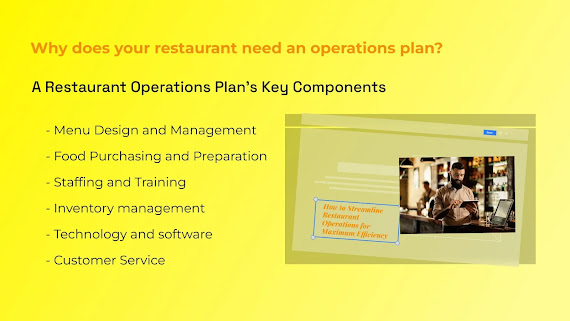Food Truck Startup Costs: How Much Does It Take to Begin?
Commencing a restaurant venture demands significant time, effort, and financial investment. This challenge can be particularly daunting for newcomers in the food industry. In such cases, a food truck offers an attractive option for those eager to gain insights into the food industry's workings. Thanks to their affordability, low overhead, minimal staffing requirements, and mobility, food trucks are regarded as a cost-effective method for serving food.
Why Are Food Trucks Popular?
Food trucks, once a passing trend, have evolved into a mainstream food business. As an increasing number of Americans embrace the concept of mobile restaurants, the food truck industry attracts newcomers, aspiring chefs, and entrepreneurs in the restaurant industry. As a result, many choose to test the waters in the food truck world before committing to a full-fledged restaurant business.
The food truck industry is steadily growing at an average rate of 8.4% annually.
Starting with a mobile operation is viewed as a safer approach. It allows operators to experiment in different neighborhoods, adapt their menu to meet demand, and cultivate a loyal customer base before venturing into a brick-and-mortar restaurant.
With new food trucks emerging rapidly, the industry's estimated worth has reached $1.2 billion.
While starting a food truck entails lower initial costs compared to a traditional restaurant, it still involves a significant investment. The capital needed to launch and run a food truck can vary greatly based on location, menu offerings, and operational approaches.
In addition to your initial startup funds, you must allocate resources for aspects beyond the basics of launching your food truck.
The notion of initiating a food truck business serves as a stepping stone toward establishing a successful restaurant in a physical location.
Factors Influencing Food Truck Startup Costs
Licenses and Permits
According to the Food Truck Index of the U.S. Chamber of Commerce, food truck owners typically spend an average of $28,276 on permits, licenses, and other legal compliance. These permits and licenses span five categories: administrative, health/menu/food safety, vehicle requirements and safety/hazard prevention, employment, and zoning. Costs are location-dependent, with cities like Portland, Denver, Orlando, Philadelphia, and Indianapolis being more food truck-friendly, while Boston, Washington D.C., San Francisco, Minneapolis, and Seattle have higher costs.
Resources and Equipment
A significant portion of your budget should be allocated to the food truck itself. The cost varies depending on whether you purchase a new or used food truck or simply opt to rent one. New, custom food trucks range from $75,000 to $150,000, while used trucks start at around $40,000 and can go up to nearly $80,000. Renting a food truck costs between $2,000 and $3,000 per month for leases of six months or longer.
Employee Recruitment and Vendor Selection
Staffing a food truck is relatively straightforward compared to a traditional restaurant. Typically, a food truck requires a maximum of three employees. Staff wages will vary from state to state, with a minimum hourly wage of about $7.25 and an average wage of $12.11 for a food truck manager. Additionally, sourcing reliable vendors is essential for food truck success.
Proper Documentation
Launching any business involves thorough paperwork, and a mobile food truck is no exception. The required permits and licenses may include an Employer Identification Number, business license, vehicle license, seller’s permit (applicable in certain states only), food safety/food handler’s permit, health department permit, and fire certificate.
Point of Sale System
A robust Point of Sale (POS) system is essential to ensure quick and efficient payment processing for your customers. It should accommodate various payment methods. The cost of a POS system depends on the chosen features.
Kitchen Equipment
The equipment required for a food truck depends on the cuisine and menu. Essential appliances typically include ovens, fryers, grills, and refrigerators. Costs for these appliances and kitchen tools will vary based on whether they are new or used.
Operational Costs
Food costs constitute a small portion of total expenses for a food truck. The primary expenditures are associated with gas, insurance, permits, licenses, maintenance, equipment, and supplies. Fuel and maintenance costs generally range between $500 and $1,000, but effective management can help reduce operational expenses.
Setting up and operating a food truck typically costs between $28,000 and $114,000. On average, a food truck can generate around $300,000 in revenue annually.
How to Reduce Food Truck Costs
- Design a flexible menu that utilizes seasonal ingredients.
- Purchase ingredients in limited quantities to avoid overstocking.
- Begin with a small staff and adjust as needed.
- Consider used or rented equipment instead of brand new.
- Choose locations with lower regulatory fees and greater opportunities.
- Expand beyond weekday lunch hours to include profitable events.
- Collaborate with other food truck operators to buy supplies in bulk.
- Develop a social media presence instead of relying on costly traditional advertising.
- Maintain the truck through regular servicing and proper use.
- Compare vendor prices to secure competitive rates.
Additional Costs Associated with Food Trucks
- Insurance: Typically ranges from $2,000 to $4,000 annually.
- Uniforms: Costs vary from $0 to $1,000.
- Paper Products: Including napkins, plates, etc., cost around $200 to $300.
- Website: Ranging from $0 to $5,000.
Launch Your Food Truck Adventure
Starting a food truck is an exciting way to enter the world of food entrepreneurship. However, understanding food and labor cost control, inventory management, purchasing, and effective communication are essential skills for success in the industry.
For more such content stay tuned with Restaurantify.




Comments
Post a Comment